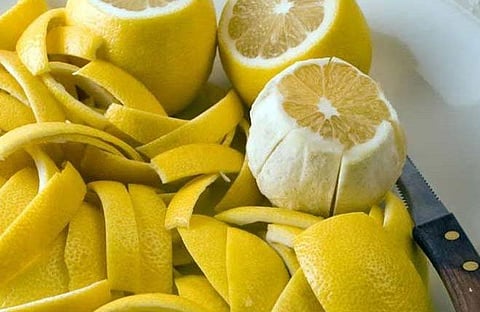
- Home
- न्यूजग्राम
- NewsGram USA
- India
- World
- Politics
- Entertainment
- Culture
- Lifestyle
- Economy
- Sports
- Sp. Coverage
- Misc.
- NewsGram Exclusive
- Jobs / Internships

The'mosambi' (Citrus limetta) peels, according to researchers at IIT (BHU), may be used to remove heavy metals from water and prevent cancer and other life-threatening illnesses. Researchers from IIT (BHUSchool )'s of Biochemical Engineering have developed an environmentally friendly and cost-effective adsorbent that can extract hazardous heavy metal ions like hexavalent chromium from polluted water and wastewater.
The work of Dr Vishal Mishra, associate professor, School of Biochemical Engineering, and his student Veer Singh was published in the international journal 'Separation Science and Technology'.
Hexavalent chromium, according to Mishra, is responsible for a variety of human health issues, including cancer, liver and kidney illness, liver dysfunction, and skin difficulties. "This is a novel environmentally friendly product made from the biomass of Citrus limetta (mosambi) peels. When compared to other traditional techniques, this adsorbent is particularly effective in removing hexavalent chromium from waste water and requires less time to separate hexavalent chromium from aqueous solution."
After the metal removal procedure, this adsorbent, according to Veer Singh, may be readily removed from the aqueous medium. The researchers investigated the adsorbent's hexavalent chromium removal capability in synthetic simulated waste water and found it to be adequate.
This adsorbent's heavy metal removal efficiency was further examined for additional heavy metal ions, such as lead, copper, and cadmium, and it was discovered that this adsorbent has emerging heavy metal removal efficiency.
Heavy metals have carcinogenic qualities that induce all sorts of cancer.national cancer institute/wikipedia
He described the technique as follows: "The mosambi peels are collected, dried, ground into granules, and then modified with chitosan, a biopolymer. After that, the peels are submerged in water and the heavy metals begin to separate."
Water-borne infections, he noted, are a serious concern in underdeveloped nations. Each year, 3.4 million people, largely children, die from water-related illnesses, according to the World Health Organization (WHO).
According to the United Nations Children's Fund (UNICEF), 4,000 children die every day as a result of drinking bacterially polluted water. According to the WHO, over 2.6 billion people lack access to safe drinking water, resulting in 2.2 million fatalities yearly, 1.4 million of whom are children.
Also read: Chemotherapy may not be needed to treat
The worldwide burden of water-borne illnesses can be reduced by improving water quality.
Hexavalent chromium and other heavy metal ions cause cancer in people all over the world. According to a research from the water resources ministry, a huge portion of the Indian population consumes water that contains fatal amounts of harmful heavy metals.
Mishra stated that mosambi peels are widely available as fruit trash, which is a socio-economic element of this study. The synthesis of adsorbents from this and chitosan is a cost-effective and environmentally benign process.
In response to a query, Mishra stated that the study had shown positive results, and that they now wanted to scale it up and make it more cost-effective.
Clinical studies would begin in the lab shortly, he added, and subsequently scale up. (IANS/PR)
(Keywords: UNICEF, socio-economic, WHO, Metals, carcinogenic)
